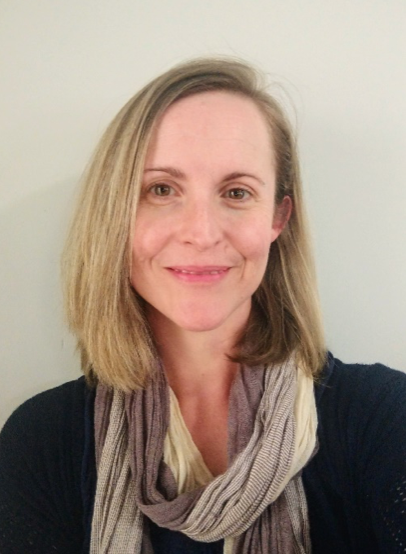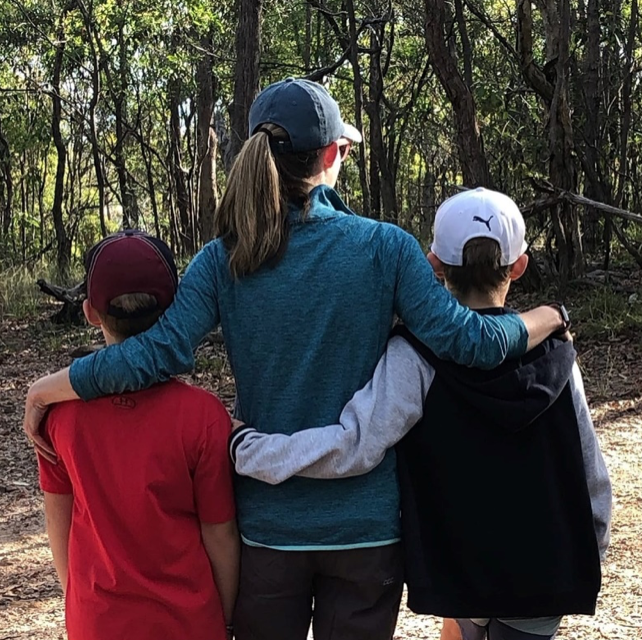Julie O'Sullivan
- WomxnConnect
- May 5, 2021
- 3 min read
I am an intuitive womxn who strives to contribute thoughtfully, productively and positively to all my endeavours.
Julie is an occupational therapist who has worked in adult mental health for over 24 years in clinical, education, management, supervision and service development roles. With experience in community, public, private and non-government sectors, Julie delivers recovery oriented and person centred approaches to people with different mental health and functional needs. She has expertise in the implementation of sensory modulation in mental health, and in 2018 co-authored ‘The Sensory Modulation Resource Manual’ with fellow OT Carolyn Fitzgibbon. Julie enjoys the challenge of helping people find practical, creative and effective ways of enhancing their wellbeing and creating a meaningful life. For 12 years Julie has been a board member of Footprints in Brisbane Inc, a not for profit organisation supporting people in the community who are marginalised, homeless, vulnerable and have complex health and psychosocial needs.
What's easy for womxn?
I am not sure if this is easy, but we are adept at utilising the resources we have to get the best outcomes we can achieve. We face daily challenges with determination, commitment and compassion for people and for the greater community.
What's difficult for womxn?
Managing mental load (the invisible tasks, duties and checklists) in addition to the multiple visible paid and unpaid responsibilities.
What brings you joy?
Spending time with my husband and my two beautiful sons, especially opportunities to have fun and laugh out loud. Also connecting with my gorgeous girlfriends over a glass of wine and cheese platter.
How do you maintain mental health?
Contact with greenspace, moving my body, talking through my worries with a trusted person, sleep, social connections and contact, strong hugs (or ‘mummy sandwiches’ from my boys!) and singing with gusto in the car. Many of my mental health strategies involve connecting with sensory input that I find nourishing, grounding and calming.
How do you nurture your relationship with nature?
Living right next door to a beautiful bush reserve means I can gaze at a stunning natural vista from the comfort of my back deck. Regular walks in the reserve with my family is a favourite weekend pursuit, where we marvel at the colours, textures and sounds of nature.
Where do you feel a sense of belonging/community?
Engaging with people reinforces my sense of connection and community. The work I do, including my time on the Board of Footprints, affords me opportunities to meet and work with a diverse range of people who are all passionate about and committed to improving the life of others. I consider it a privilege to help people, sometimes when they are at their most vulnerable, to work towards a greater understanding of themselves to build confidence, resilience, wellbeing and quality of life.
Where do you live/work?
After over 19 years working in public community mental health I am now in private practice. My work includes delivering mental health OT services for Coastal Work & Rehabilitation Solutions, co-director of Sensory Modulation Brisbane, and delivering professional supervision to a range of specialists working in community and mental health services. I love living in Brisbane, Queensland (Turrbal Jagera country).
Who was / is an influential woman in your life and why?
I count myself as extremely fortunate to have had so many generous, wise, strong and loyal female friends and role models in my life, in particular my colleague and mentor, Carolyn Fitzgibbon. I first met Carolyn when studying occupational therapy, and as my supervisor I credit her for igniting my keen interest in mental health. As well as working together for many years in different service settings, we have presented papers and workshops, published articles and in 2018 published a book together ‘Sensory Modulation Resource Manual’. I feel so blessed to be able to work alongside a woman who is not only a gifted clinician, but also a wonderful friend.
Connection
Julie's warm comments about the women in her life give us pause to reflect on how we can intentionally nurture and be nurtured by women. How important it is to find or form a community to bring levity and constancy to our existence.
“When women come together, there’s a world of possibility that unfolds. Doors are opened, walls come down, we lift each other up.”
— Eileen Fisher










Comments